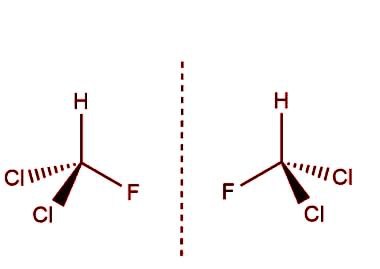What are Ketones?
Definition
Ketones are a type of compound that are produced by the breakdown of fats in the liver. They are often produced when the body is using fat as a source of energy, such as when glucose is not readily available and can be used by the body's cells as an alternative energy source. The most well-known ketone is acetone which is a byproduct of the breakdown of fatty acids. The presence of ketones in the urine or blood is an indication of ketosis, a metabolic state in which the body is burning fat for fuel.
Nomenclature of ketones
The nomenclature of ketones is based on the naming conventions established by the International Union of Pure and Applied Chemistry (IUPAC). The general structure of a ketone is characterized by a carbonyl group (C=O) located at the center of the molecule, with two hydrocarbon groups, or alkyl groups, attached to the carbon atom of the carbonyl group.
The naming of ketones follows the following pattern:
- -The parent chain is named by counting the number of carbon atoms in the hydrocarbon chain starting from the carbonyl carbon atom and ending at the end of the chain.
- -The carbonyl carbon atom is given the lowest possible number and is indicated by the suffix -one.
- -The location of the carbonyl group is indicated by a number that gives the position of the carbonyl carbon atom in the hydrocarbon chain.
- -The alkyl groups attached to the carbonyl carbon atom are named as substituents and are indicated by their names and their positions on the hydrocarbon chain.
For example, consider the ketone with the molecular formula C4H8O, which has the structure H3C-CH2-C(=O)-CH3. This ketone would be named "butanone", where "but-" is the parent hydrocarbon chain of four carbon atoms and "-one" indicates the carbonyl group.
Another example could be: CH3-C(=O)-CH2-CH3, which is 2-butanone.
Properties of ketones
Ketones have a number of chemical and physical properties that are unique to this class of compounds. Here are a few key properties of ketones:
- Solubility: Many ketones are relatively soluble in water, but the solubility decreases as the carbon chain length increases.
- Boiling point: The boiling point of ketones increases with the length of the carbon chain. This is because longer chain molecules have more opportunities for intermolecular attractive forces.
- Dipole moment: Ketones have a polar carbonyl functional group (C=O) which contributes to a dipole moment.
- Reactivity: The carbonyl group in ketones is electrophilic, making them susceptible to nucleophilic addition reactions. Ketones also undergo oxidation and reduction reactions and can be converted to other functional groups.
- Odor: some ketones have a distinct, fruity, or floral odor. for example, acetone has a characteristic fruity and sweet smell, which is also one of the reasons of it is used in solvent, nail polish remover, and other industrial processes
- Stability: In general ketones are relatively stable, but they are more reactive than alkanes and alkenes and can be oxidized or reduced.
Please note that these are general properties, some specific ketones may have different or additional properties depending on the structure.
Uses
Ketones have a wide range of industrial and commercial uses due to their unique chemical properties. Some examples include:
- Solvents: Ketones are commonly used as solvents in the paint, coatings, and adhesives industries because of their ability to dissolve a wide range of substances.
- Pharmaceuticals: Some ketones are used as intermediate compounds in the synthesis of drugs and other pharmaceutical products.
- Flavorings and fragrances: Some ketones such as diacetyl, which is present in many butter-flavored popcorns, are used in the food industry to impart a buttery flavor and aroma
- Biotechnology: ketones are also known to act as signaling molecules and have been shown to have beneficial effects on health, such as improving cognitive function and preventing neurological disease.
- Synthetic compounds: ketones are often used as intermediates in organic synthesis to prepare other compounds of industrial interest.
- Nail polish remover: Acetone is a common ingredient in nail polish removers, as it is able to dissolve the polymer compounds in the polish.
- Cleaning agents: acetone is also used in certain cleaning agents to remove grease and oil stains.
- Plastic Industries: Acetone is used in the production of certain types of plastic, particularly polycarbonate plastics.
This is not an exhaustive list and there are many other uses of ketones in various industrial and commercial applications.
Let me know if you have more questions or if there is a specific topic that you would like to know more about.





If you have any doubts, please let me know